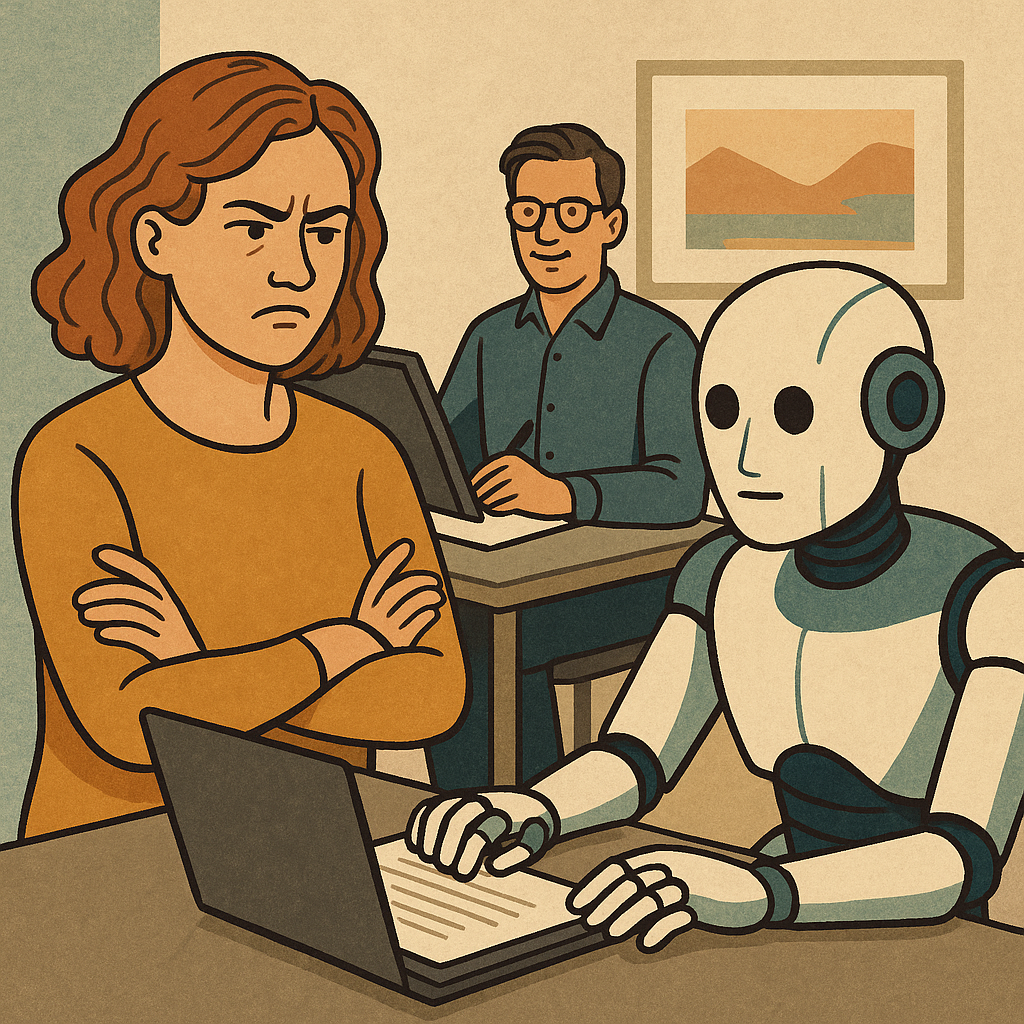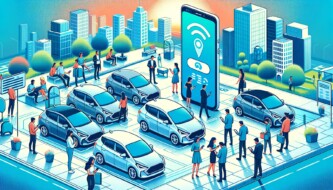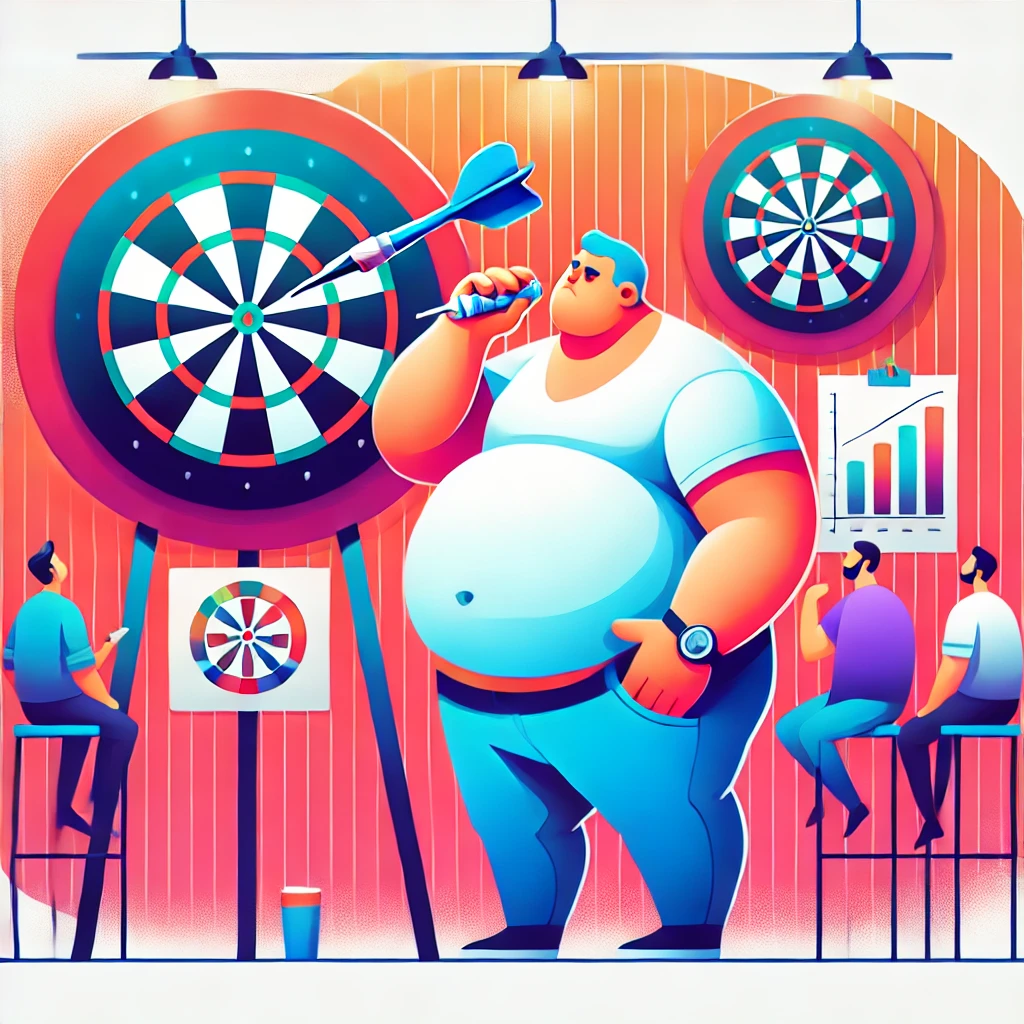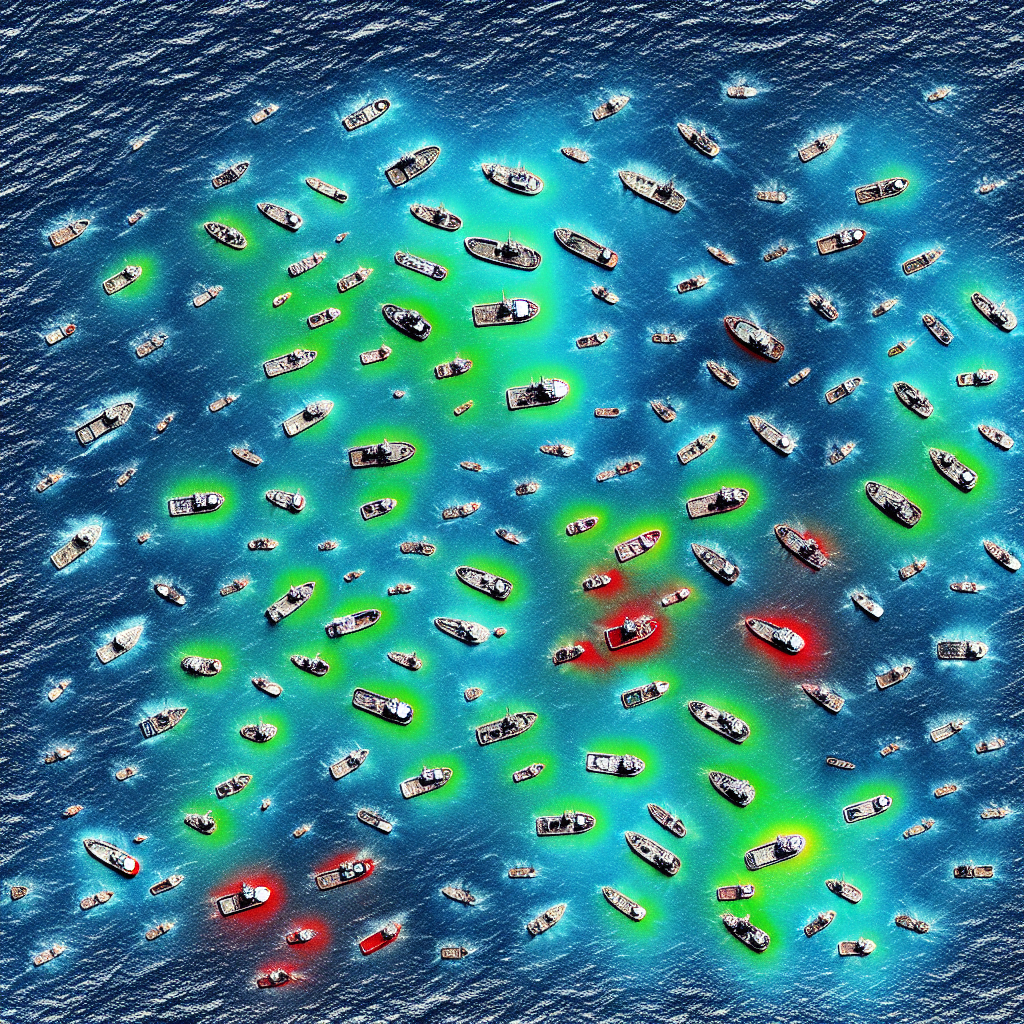As artificial intelligence (AI) becomes more common in different industries, some people are choosing to resist using it. One of these individuals is Sabine Zetteler, who runs a communications agency in London. She is skeptical about AI, saying, “Why would I bother to read something someone couldn’t be bothered to write?” This shows that she believes AI-generated content lacks the personal touch and emotional connection that she values in her work. For her, replacing human workers with AI tools takes away the joy and purpose of her job as a founder.
The popularity of AI tools like ChatGPT, which became well-known after its launch in late 2022, has raised worries about their environmental effects. A report from Goldman Sachs states that just one question to ChatGPT uses almost ten times more electricity than a Google search. This energy use concerns people like Florence Achery, who runs a yoga retreat business. Achery focuses on human connection in her work and feels that AI goes against this idea. She also points out the environmental issues caused by data centers that support AI technologies, suggesting that many people don’t realize how serious these problems are.
While Zetteler sees some benefits of AI, like helping visually impaired people, she is doubtful about its long-term benefits for society. She wonders if the money saved by using AI is worth the possible negative effects on human creativity and connection. Zetteler believes that success should not only be about making money but also about how much we contribute to society and find personal satisfaction. This view is shared by others who are concerned about how AI might affect our critical thinking and problem-solving skills.
Sierra Hanson, a public affairs professional in Seattle, shares similar worries about how AI affects our thinking abilities. She thinks that depending on AI for simple tasks can weaken our critical thinking skills. Hanson points out that our brains are meant to help us manage our daily lives, and relying on AI takes away our ability to think for ourselves. On the other hand, some people, like Jackie Adams, have felt pressured to use AI tools at work, even though they initially resisted due to environmental concerns. Adams admits that her colleagues’ use of AI for tasks like copywriting pushed her to adapt in order to stay competitive in her field. The discussion about AI is complicated, with different opinions on how it affects society and careers.
Original news source: The people refusing to use AI (BBC)
🎧 Listen:
Slow
Normal
Fast
📖 Vocabulary:
| 1 | skeptical | Not easily convinced; having doubts or reservations |
| 2 | founder | A person who starts a company or organization |
| 3 | popularity | The state of being liked or supported by many people |
| 4 | environmental | Related to the natural world and the impact of human activity on it |
| 5 | connection | A relationship or link between people or things |
| 6 | doubtful | Feeling uncertain or unsure about something |
| 7 | creativity | The use of imagination to create something new |
| 8 | satisfaction | The feeling of contentment or fulfillment |
| 9 | critical | Involving careful judgment or evaluation |
| 10 | manage | To control or be in charge of something |
| 11 | relying | Depending on someone or something for support |
| 12 | pressured | Feeling forced or pushed to do something |
| 13 | adapt | To change or adjust to new conditions |
| 14 | competitive | Wanting to be as good as or better than others |
| 15 | complicated | Difficult to understand or deal with due to many parts or factors |
Group or Classroom Activities
Warm-up Activities:
– CHARADES
Instructions: Divide the class into two teams. Each team takes turns choosing a word or phrase related to the article (e.g., “artificial intelligence,” “environmental effects,” “critical thinking”). One member of the team acts it out without speaking while their teammates guess the term. Set a time limit for each turn.
– OPINION POLL
Instructions: Create a series of statements based on the article (e.g., “AI has more benefits than drawbacks”). Students walk around the classroom, asking their classmates if they agree or disagree. After collecting responses, students can share the results and discuss the varying opinions in small groups.
– HEADLINE CREATION
Instructions: Students work in pairs to create catchy headlines that summarize the key points of the article. After brainstorming, pairs share their headlines with the class, and the group discusses which headlines best capture the essence of the article.
– MIND MAP
Instructions: On the board, draw a large circle and write “Artificial Intelligence” in it. In small groups, students brainstorm and add branches to the mind map with words and phrases related to the article, such as “environment,” “human connection,” and “critical thinking.” Groups present their contributions to the class.
– TWO TRUTHS AND A LIE
Instructions: Each student writes down three statements about AI based on the article—two truths and one lie. They then take turns sharing their statements with a partner or the class, who must guess which statement is the lie. This encourages critical thinking and discussion about the content.
🤔 Comprehension Questions:
1. Who is Sabine Zetteler and what is her opinion about AI-generated content?
2. What concerns does Florence Achery have regarding the use of AI in her yoga retreat business?
3. According to the article, how much more electricity does a question to ChatGPT use compared to a Google search?
4. What are some potential negative effects of AI that Zetteler worries about?
5. How does Sierra Hanson believe relying on AI for simple tasks affects our critical thinking skills?
6. What reasons does Jackie Adams give for eventually using AI tools at work despite her initial resistance?
7. What does Zetteler believe should be important when measuring success in a career?
8. Why is the discussion about AI described as complicated in the article?
Go to answers ⇩
🎧✍️ Listen and Fill in the Gaps:
As artificial intelligence (AI) becomes more common in different industries, some people are choosing to resist using it. One of these individuals is Sabine Zetteler, who runs a communications agency in (1)______. She is skeptical about AI, saying, “Why would I bother to read something someone couldn’t be bothered to write?” This shows that she believes AI-generated content lacks the personal touch and emotional connection that she values in her work. For her, replacing (2)______ workers with AI (3)______ takes away the joy and (4)______ of her job as a founder.
The popularity of AI tools like ChatGPT, which became well-known after its launch in late 2022, has raised worries about their environmental effects. A report from Goldman Sachs states that just one question to ChatGPT uses almost ten times more electricity than a Google search. This energy use concerns people like Florence Achery, who runs a yoga (5)______ business. Achery (6)______ on human connection in her work and (7)______ that AI goes against this idea. She also points out the environmental issues caused by data (8)______ that support AI technologies, suggesting that many people don’t realize how serious these problems are.
While Zetteler sees some benefits of AI, like helping visually (9)______ people, she is doubtful about its long-term benefits for society. She wonders if the money (10)______ by using AI is worth the possible (11)______ effects on human creativity and connection. Zetteler believes that success should not only be about making money but also about how much we contribute to society and find personal satisfaction. This view is shared by others who are concerned about how AI might affect our critical thinking and problem-solving skills.
Sierra Hanson, a public affairs professional in Seattle, shares (12)______ worries about how AI affects our thinking abilities. She thinks that depending on AI for simple (13)______ can weaken our critical thinking (14)______. Hanson points out that our brains are meant to help us manage our daily lives, and relying on AI takes away our ability to think for ourselves. On the other hand, some people, like Jackie Adams, have felt pressured to use AI tools at work, even though they initially resisted due to environmental concerns. Adams admits that her colleagues’ use of AI for tasks like copywriting pushed her to adapt in order to stay (15)______ in her field. The discussion about AI is complicated, with different (16)______ on how it affects society and careers.
Go to answers ⇩
💬 Discussion Questions:
Students can ask a partner these questions, or discuss them as a group.
1. What is your opinion about using artificial intelligence in everyday life?
2. How would you feel if you had to rely on AI for your schoolwork?
3. Do you think AI can ever replace human creativity? Why or why not?
4. Have you ever used AI tools like ChatGPT? If so, what was your experience?
5. What is a job that you think should never be done by AI? Why?
6. How do you think AI could affect your future career?
7. Do you like the idea of AI helping people with disabilities? Why?
8. How would you feel if you were in a job where AI was used to replace some tasks?
9. Do you think the environmental impact of AI is a serious issue? Why?
10. What is a situation where you think human connection is more important than efficiency?
11. How do you think using AI could change the way we think and solve problems?
12. Do you believe that success should be measured only by money? Why or why not?
13. Have you ever felt pressured to use technology, like AI, to keep up with others? How did it make you feel?
14. What is a positive use of AI that you can think of?
15. How would you feel if you had to choose between using AI tools or doing everything manually? Why?
Individual Activities
📖💭 Vocabulary Meanings:
Match each word to its meaning.
Words:
1. skeptical
2. founder
3. popularity
4. environmental
5. connection
6. doubtful
7. creativity
8. satisfaction
9. critical
10. manage
11. relying
12. pressured
13. adapt
14. competitive
15. complicated
Meanings:
(A) Related to the natural world and the impact of human activity on it
(B) Depending on someone or something for support
(C) The feeling of contentment or fulfillment
(D) The use of imagination to create something new
(E) Difficult to understand or deal with due to many parts or factors
(F) Feeling forced or pushed to do something
(G) Feeling uncertain or unsure about something
(H) Wanting to be as good as or better than others
(I) A relationship or link between people or things
(J) A person who starts a company or organization
(K) To control or be in charge of something
(L) The state of being liked or supported by many people
(M) To change or adjust to new conditions
(N) Not easily convinced; having doubts or reservations
(O) Involving careful judgment or evaluation
Go to answers ⇩
🔡 Multiple Choice Questions:
1. Who runs a communications agency in London and is skeptical about AI?
(a) Florence Achery
(b) Sabine Zetteler
(c) Sierra Hanson
(d) Jackie Adams
2. What does Sabine Zetteler believe AI-generated content lacks?
(a) Accuracy and detail
(b) Speed and efficiency
(c) Personal touch and emotional connection
(d) Cost-effectiveness
3. What environmental concern is raised about AI tools like ChatGPT?
(a) Water pollution
(b) Air quality issues
(c) Waste production
(d) High electricity usage
4. What type of business does Florence Achery run?
(a) A yoga retreat
(b) A communications agency
(c) A tech startup
(d) A restaurant
5. What does Zetteler believe success should be about?
(a) Making as much money as possible
(b) Contribution to society and personal satisfaction
(c) Gaining popularity and fame
(d) Using the latest technology
6. What concern does Sierra Hanson have about relying on AI?
(a) It weakens critical thinking skills
(b) It improves productivity
(c) It creates job opportunities
(d) It enhances creativity
7. How did Jackie Adams feel about using AI tools at work initially?
(a) She was excited to use them
(b) She felt it was unnecessary
(c) She resisted due to environmental concerns
(d) She thought it would be fun
8. What is a common theme among the individuals discussed in the article regarding AI?
(a) Excitement about its potential benefits
(b) Belief that it will replace all human jobs
(c) Indifference towards its effects on society
(d) Concerns about its impact on human connection and creativity
Go to answers ⇩
🕵️ True or False Questions:
1. Jackie Adams initially resisted using AI tools at work due to personal preferences but felt pressured to adapt.
2. Zetteler thinks that the benefits of AI might not outweigh its negative effects on human creativity and connection.
3. Sabine Zetteler runs a communications agency in London and is enthusiastic about using AI.
4. Florence Achery, who runs a yoga retreat business, is also worried about the environmental effects of AI.
5. A report from Goldman Sachs states that using ChatGPT consumes significantly less electricity than a Google search.
6. Zetteler believes that AI-generated content lacks a personal touch and emotional disconnect.
7. Sierra Hanson, a public affairs professional, believes that relying on AI can weaken our critical thinking skills.
8. The discussion about AI includes various opinions on its impact on society and careers.
Go to answers ⇩
📝 Write a Summary:
Write a summary of this news article in two sentences.
Check your writing now with the best free AI for English writing!
Writing Questions:
Answer the following questions. Write as much as you can for each answer.
Check your answers with our free English writing assistant!
1. Why does Sabine Zetteler believe that AI-generated content lacks value?
2. What environmental concerns are raised by Florence Achery regarding AI technologies?
3. How does Zetteler feel about the balance between making money and contributing to society?
4. What worries does Sierra Hanson have about our thinking abilities in relation to AI?
5. Why did Jackie Adams feel pressured to start using AI tools at work despite her initial resistance?
✅ Answers
🤔✅ Comprehension Question Answers:
1. Who is Sabine Zetteler and what is her opinion about AI-generated content?
Sabine Zetteler is a communications agency owner in London. She believes that AI-generated content lacks the personal touch and emotional connection that she values, saying, “Why would I bother to read something someone couldn’t be bothered to write?”
2. What concerns does Florence Achery have regarding the use of AI in her yoga retreat business?
Florence Achery is worried that AI goes against the idea of human connection that she focuses on in her work. She also highlights the environmental issues caused by data centers that support AI technologies.
3. According to the article, how much more electricity does a question to ChatGPT use compared to a Google search?
A question to ChatGPT uses almost ten times more electricity than a Google search.
4. What are some potential negative effects of AI that Zetteler worries about?
Zetteler worries that AI might negatively affect human creativity and connection, and she questions whether the money saved by using AI is worth these potential downsides.
5. How does Sierra Hanson believe relying on AI for simple tasks affects our critical thinking skills?
Sierra Hanson thinks that depending on AI for simple tasks can weaken our critical thinking skills, as it takes away our ability to think for ourselves.
6. What reasons does Jackie Adams give for eventually using AI tools at work despite her initial resistance?
Jackie Adams felt pressured to use AI tools because her colleagues were using them for tasks like copywriting, and she wanted to stay competitive in her field.
7. What does Zetteler believe should be important when measuring success in a career?
Zetteler believes that success should not only be about making money but also about contributing to society and finding personal satisfaction.
8. Why is the discussion about AI described as complicated in the article?
The discussion about AI is complicated because there are different opinions on how it affects society and careers, with some people seeing benefits while others are concerned about its negative impacts.
Go back to questions ⇧
🎧✍️✅ Listen and Fill in the Gaps Answers:
(1) London
(2) human
(3) tools
(4) purpose
(5) retreat
(6) focuses
(7) feels
(8) centers
(9) impaired
(10) saved
(11) negative
(12) similar
(13) tasks
(14) skills
(15) competitive
(16) opinions
Go back to questions ⇧
📖💭✅ Vocabulary Meanings Answers:
1. skeptical
Answer: (N) Not easily convinced; having doubts or reservations
2. founder
Answer: (J) A person who starts a company or organization
3. popularity
Answer: (L) The state of being liked or supported by many people
4. environmental
Answer: (A) Related to the natural world and the impact of human activity on it
5. connection
Answer: (I) A relationship or link between people or things
6. doubtful
Answer: (G) Feeling uncertain or unsure about something
7. creativity
Answer: (D) The use of imagination to create something new
8. satisfaction
Answer: (C) The feeling of contentment or fulfillment
9. critical
Answer: (O) Involving careful judgment or evaluation
10. manage
Answer: (K) To control or be in charge of something
11. relying
Answer: (B) Depending on someone or something for support
12. pressured
Answer: (F) Feeling forced or pushed to do something
13. adapt
Answer: (M) To change or adjust to new conditions
14. competitive
Answer: (H) Wanting to be as good as or better than others
15. complicated
Answer: (E) Difficult to understand or deal with due to many parts or factors
Go back to questions ⇧
🔡✅ Multiple Choice Answers:
1. Who runs a communications agency in London and is skeptical about AI?
Answer: (b) Sabine Zetteler
2. What does Sabine Zetteler believe AI-generated content lacks?
Answer: (c) Personal touch and emotional connection
3. What environmental concern is raised about AI tools like ChatGPT?
Answer: (d) High electricity usage
4. What type of business does Florence Achery run?
Answer: (a) A yoga retreat
5. What does Zetteler believe success should be about?
Answer: (b) Contribution to society and personal satisfaction
6. What concern does Sierra Hanson have about relying on AI?
Answer: (a) It weakens critical thinking skills
7. How did Jackie Adams feel about using AI tools at work initially?
Answer: (c) She resisted due to environmental concerns
8. What is a common theme among the individuals discussed in the article regarding AI?
Answer: (d) Concerns about its impact on human connection and creativity
Go back to questions ⇧
🕵️✅ True or False Answers:
1. Jackie Adams initially resisted using AI tools at work due to personal preferences but felt pressured to adapt. (Answer: False)
2. Zetteler thinks that the benefits of AI might not outweigh its negative effects on human creativity and connection. (Answer: True)
3. Sabine Zetteler runs a communications agency in London and is enthusiastic about using AI. (Answer: False)
4. Florence Achery, who runs a yoga retreat business, is also worried about the environmental effects of AI. (Answer: True)
5. A report from Goldman Sachs states that using ChatGPT consumes significantly less electricity than a Google search. (Answer: False)
6. Zetteler believes that AI-generated content lacks a personal touch and emotional disconnect. (Answer: False)
7. Sierra Hanson, a public affairs professional, believes that relying on AI can weaken our critical thinking skills. (Answer: True)
8. The discussion about AI includes various opinions on its impact on society and careers. (Answer: True)
Go back to questions ⇧













